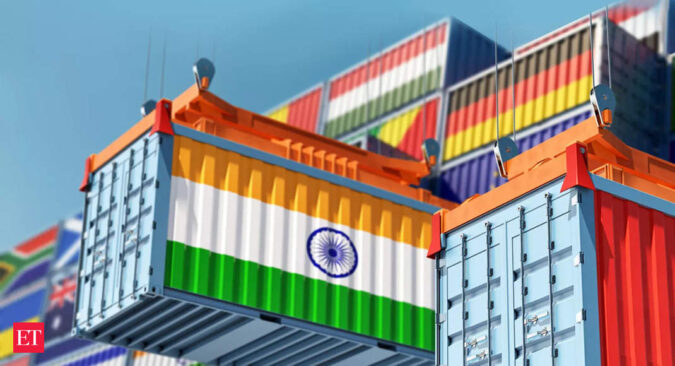This gains salience given that the government of India is looking to pursue an export-led growth strategy and Global Value Chain (GVC) integration, at a time when even globally, firms are looking to derisk and diversify. It is notable that growth in exports can translate into a significant boost in both GDP and employment.
Experts recognised the need to prioritise and consolidate the export potential of certain sectors, including those which have been India’s traditional export strengths (garments, gems and jewelry, pharmaceuticals, marine products etc.). This should be accompanied by a focus on greater value-addition even within these product groups. While India is already undertaking policy measures to improve its performance in capital-intensive and skill-intensive exports, there was a sense that more needed to be done to enhance India’s labour-intensive exports.
The need to bolster overall levels of competitiveness by upgrading logistics, involving state and local administrations, and entering into Free Trade Agreements (FTAs) was also highlighted. Experts also weighed in on the need to have in-built mechanisms for pursuing cooperation on standards, for example, through Mutual Recognition Agreements (MRAs) at the time of entry into force of FTAs itself, rather than leaving them to be dealt with later.
Many in the room raised the issue of the absence of evidence-backed, data-supported analytical studies which can support arguments and positions on India’s trade policy. The corresponding need for rigorous studies based on an empirical orientation and precise calculations based on robust quantitative data, which can feed into the negotiating processes, was highlighted. Overall, there was recognition that a lot more effort is required on the front of quantitative analysis in India, in terms of both data collection and modeling. The issue of approach and capacity also came up in the context of limited capacity on matters of international law. Experts observed that there was a tendency to consider economic affairs almost entirely from the lens of economic gains and losses, with lesser focus on ascertaining their potential legal and regulatory implications.
Another important theme that came up for discussion was the peril of overemphasising trade (in particular giving disproportionate attention to merchandise trade and tariffs) over services and investment-related aspects. The bifurcation of matters into ‘trade’ and ‘investment’, an approach which has come to be preferred by India in the recent years, rather than treating them as parts of a unified whole, may be to India’s detriment given how inextricably linked trade and investment have become.
There was a sense that India’s trade negotiating strategy, while adequately taking into account domestic producer concerns, needed to convey to its trading partners that India is genuinely interested in pursuing trade liberalisation and enhancing trading relations. Equally, trade agreements needed to reflect living realities, in sync with the concerns and priorities of firms who are actually participating in the international trade of goods and services.Finally, the discussions touched upon questions of narrative-building, essentially underlining the need for stakeholders to disseminate information and supportive accounts of the transformative potential of international trade for India. Greater political buy-in may be realised through such reiterations, and this can stimulate further reform. More efforts are required to publicise how much employment and growth can be generated, and how trade can help improve the standards of living for all in the longer term, even if there may be adjustment costs associated with trade liberalisation in the short term.
In sum, the aim must be to achieve an optimum messaging which takes into account both the numbers and the narrative, in order to achieve maximum societal endorsement for a trade-led economic growth strategy for India.
The session was chaired by Pradeep S Mehta, Secretary General, CUTS International. The participants in this closed-door, informal meeting included Abhishek Manu Singhvi, Montek Singh Ahluwalia, V S Seshadri, Surjit Bhalla, Sachin Chaturvedi, Sumanta Chaudhuri, Pritam Banerjee, Prabhash Ranjan, Gopal Agarwal and Sanjaya Baru, all of whom took part in their personal capacities.
